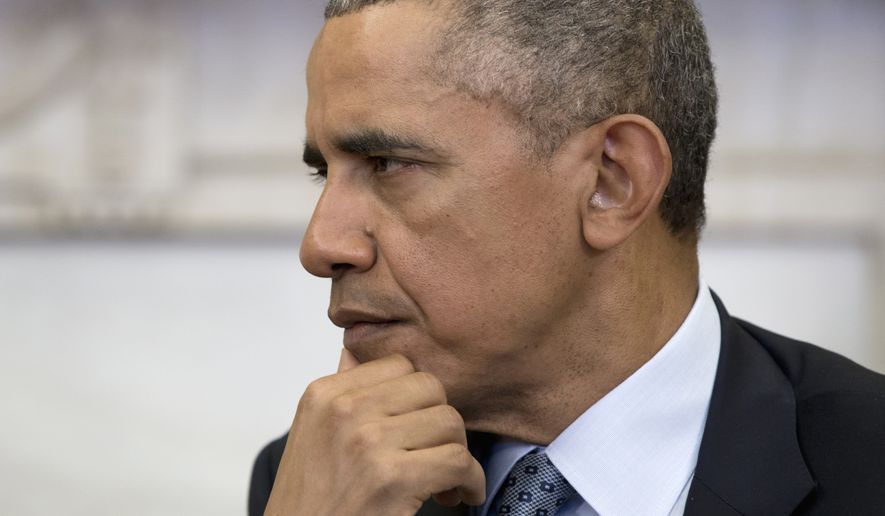OPINION:
Not everyone can win a popularity contest, which is why not everybody can be the president. As difficult as winning may be, staying in the good graces of the electorate is even more difficult. Seven years after climbing to the top of the heap, public-opinion has put President Obama in his rightful place: well below average. The judgment of his countrymen can be cruel, but it happens to every president. Maybe not to George Washington, but gratitude was in full flower then, and never again.
Mr. Obama has job approval of 47.3 percent of Americans over the span of his presidency, as reckoned in a Gallup Poll. If he continues along that trajectory in his final year, he will finish near the bottom of the roster of presidents since World War II, along with the likes of Harry S. Truman (for him history has been kinder), Jimmy Carter and Gerald Ford. It would be hard to duplicate the aversion Americans felt toward George W. Bush near the end of his presidency, when Mr. Obama’s predecessor scored a miserable 33.3 percent approval in his seventh year. But Mr. Bush sent Americans into an unpopular war overseas, and Mr. Obama has done it without leaving home. “Hope and change” is so yesterday.
A president is always more popular with his own party than the opposing one, and Mr. Obama’s dismal numbers are reflected in the widening gulf between Republicans and Democrats. Ronald Reagan averaged 31 percent approval from Democrats, and Bill Clinton rated 27 percent favorability from Republicans. President Obama has received only a bottom-basement 13 percent job approval by Republicans. That’s the price he pays for his my-way-or-the-highway governing.
America’s first black president didn’t start out at odds with the public. Most Americans wished him well, pleased that he broke the color bar at the White House. His first report card boasted a hefty 57.2 percent approval. The battle for the passage of Obamacare, which he and Democratic allies rammed through Congress without a single Republican vote in his second year, pulled his favorability below 50 percent, and it has never recovered. If there’s a consolation for him in his seventh year, it’s that a rating of 46.2 percent approval is better than the previous year’s 42.6. The average for his predecessors is 53 percent.
Mr. Obama’s troubled presidency has been shadowed by declining public approval of government in general. The public’s satisfaction with federal agencies has sunk to an eight-year low, according to the American Customer Satisfaction Index, just released by the nonpartisan Pew Research Center. Just 63.9 percent of those polled are happy with the federal performance, though some departments scored higher than others. The Interior Department, the steward of the national parks beloved by everybody, satisfies 75 percent of the public. Anchored at the bottom, at 55 percent, is the Treasury Department, the not-so-proud parent of the Internal Revenue Service, notorious for its targeting of conservatives for the dreaded audit of tax returns.
Distinguishing cause from effect can be difficult, but it’s likely that Mr. Obama’s persistent low rating has contributed to the public’s exasperation with his administration. Folk wisdom decrees that a fish rots from the head, and new leadership can’t arrive too soon. His successor will appear, at least in the beginning, positively Reaganesque.




Please read our comment policy before commenting.